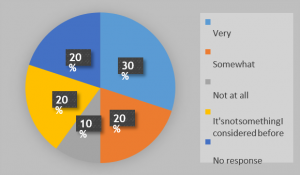This blog post was written by UCL Press.
Background
UCL Press conducted student and staff surveys on the two Jisc e-textbooks, Textbook of Plastic and Reconstructive Surgery and Key Concepts in Public Archaeology. As well as questions on the textbooks specifically they were also more general questions in the surveys about resources for modules/courses and ease of access to these. Surveys were sent to students and staff on the MSc Burns, Plastics & Reconstructive Surgery and MA Public Archaeology courses.
Staff survey results: Textbook of Plastic and Reconstructive Surgery
Resourcing and costs
Respondents were overwhelmingly content that their institution had access to all the resources they needed.
- One respondent noted that ‘although the textbook is available for borrowing from the library as well as online, the copies are limited so we have purchased our hard copy’.
- Respondents were asked whether they considered the cost of reading material for their students. Of the responses the split was:
- In addition, 67% felt that a free e-textbook produced by the university influenced their decision to add it to a reading list.
- When asked whether this was the only e-textbook used for the module or course, there was a 57:43 percentage split with slightly more respondents using more than just this e-textbook.
Use: Access and Format
The preferred format for module and course materials for staff was 2:1 in favour of print material. In addition, when accessing the e-textbook online, the majority of respondents used Moodle or another VLE. One utilised the iBook store, while another downloaded from the website and saved as a PDF. When asked about the format used to access the e-Version, the majority used the EPDF with only one user utilising an app.
Student survey results
Resourcing and costs
- No students had purchased the textbook, but they had borrowed it from the library. This was the only e-textbook that they used for their module/course. One student noted that the UCL e-textbook was the most useful ‘as exams were based on these chapters’.
- Students felt that the maximum price they would pay for reading material was between £30-£40 per book
Use: Access and Format
- E-book was the preferred format, in EPDF, accessed on a laptop.
Conclusions
- ‘67% [of academics] felt that a free e-textbook produced by the university influenced their decision to add it to a reading list’: This suggests support for both open access and institutional publishing.
- The comment about limited availability of the textbook from the library suggests there is not adequate provision and points in favour of having an open access electronic version that can be made widely available.
- It’s interesting to note print is still a favourable format for staff. The app has not been utilised as much as other e-formats. Also interesting to note the student preference for the ebook in EPDF form which suggests they are content with a simpler format. The price students state they would pay for reading material also suggests a need for lower-cost alternatives to existing commercial books in this subject area on the market.
Student Survey Results: Key Concepts in Public Archaeology
There were no staff responses to this survey, and therefore comparisons cannot be made between the staff and student responses. In addition, there were a low number of student responses so caution is needed when interpreting the results
Student survey results
In terms of willingness to spend money on reading material, students felt £15 per book, or £100 in total would be the maximum they would spend.
Students accessed the e-textbook via the UCL Library, UCL Press website or Moodle, accessing in on laptops in EPDF or HTML.
The majority of respondents found the e-textbook helpful and were very satisfied with the volume, and found it better than other reading material on their module/course. Students found it complementary to other reading material, noting that ‘this book offers a solid foundation in the various themes discussed within the course’ and that it was a ‘perfect start point and very approachable’.
Conclusions
- Again the EPDF format appears to be popular.

